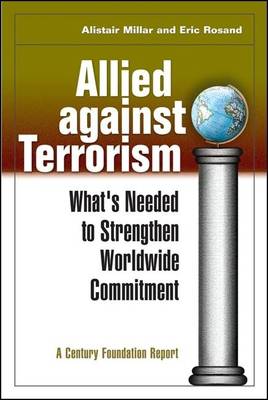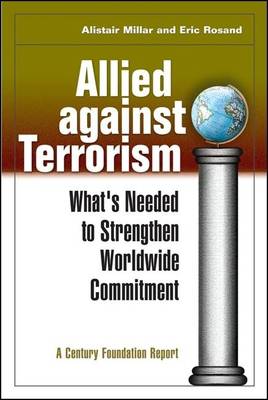
Je cadeautjes zeker op tijd in huis hebben voor de feestdagen? Kom langs in onze winkels en vind het perfecte geschenk!
- Afhalen na 1 uur in een winkel met voorraad
- Gratis thuislevering in België vanaf € 30
- Ruim aanbod met 7 miljoen producten
Je cadeautjes zeker op tijd in huis hebben voor de feestdagen? Kom langs in onze winkels en vind het perfecte geschenk!
- Afhalen na 1 uur in een winkel met voorraad
- Gratis thuislevering in België vanaf € 30
- Ruim aanbod met 7 miljoen producten
Zoeken
€ 19,45
+ 38 punten
Omschrijving
There is now broad recognition that even the most powerful of countries cannot successfully fight terrorism on its own. Cross-border cooperation is necessary to trace funding, disrupt planning, and thwart new attacks as well as to investigate, capture, and prosecute terrorists and their supporters should those preventive efforts fail.
Specificaties
Betrokkenen
- Auteur(s):
- Uitgeverij:
Inhoud
- Aantal bladzijden:
- 134
- Reeks:
Eigenschappen
- Productcode (EAN):
- 9780870785054
- Verschijningsdatum:
- 25/09/2006
- Uitvoering:
- Paperback

Alleen bij Standaard Boekhandel
+ 38 punten op je klantenkaart van Standaard Boekhandel
Beoordelingen
We publiceren alleen reviews die voldoen aan de voorwaarden voor reviews. Bekijk onze voorwaarden voor reviews.









